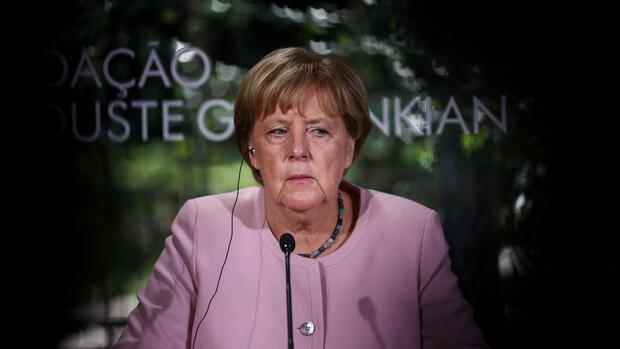The CDU foreign policy expert Roderich Kiesewetter, on the other hand, called on Merkel to be more self-critical about her Russia policy. “I would like to see more in-depth reflection and critical self-assessment from the former Chancellor,” Kiesewetter told the Handelsblatt.
Klingbeil had previously surprisingly acknowledged several mistakes made by his party in Russia policy in recent decades. “After the end of the Cold War, the SPD believed that relations with Russia would simply keep getting better,” said Klingbeil on Tuesday evening in a speech at a party event in Berlin. This created “blind spots” that led to mistakes in dealing with Russia. Today, on the other hand, it is about organizing security against Russia, which has said goodbye to the common system of values.
The SPD has often commented on its Russia policy – even self-critically. At the beginning of April, Federal President Frank-Walter Steinmeier, for example, spoke about his role in energy policy as head of the Chancellor’s office under Gerhard Schröder and as foreign minister under Merkel and described sticking to Nord Stream 2 as a clear mistake. “We clung to bridges that Russia no longer believed in and that our partners warned us about.” He was also wrong about Putin.
Top jobs of the day
Find the best jobs now and
be notified by email.
Merkel, on the other hand, has always defended her Russia policy. In June, she publicly commented on this for the first time since the end of her chancellorship. She stuck to her decision to build the Nord Stream 2 Baltic Sea gas pipeline to Russia. “I didn’t believe in change through trade, but in connection through trade, with the second largest nuclear power in the world,” said the CDU politician, who was Chancellor from 2005 to 2021. But it wasn’t an easy decision.
Merkel promotes understanding for her focus on Russian natural gas
This week Merkel reaffirmed the correctness of the decision of earlier years to have relied heavily on cheap natural gas from Russia for a transitional period during the energy transition. “One always acts in the time in which one is,” Merkel campaigned for understanding at an event in the Portuguese capital of Lisbon.
>> Read also: SPD parliamentary group leader Mützenich on the consequences of the Ukraine war – “A new economic order is emerging”
Kiesewetter admitted that Merkel recognized Russian President Vladimir Putin’s goal of weakening and dividing Europe. But she had “drawn the wrong conclusions” and only reacted with “soft power”, also because in the coalition with the SPD and the focus on economic interests, a different approach would not have been opportune.
Kiesewetter said the Russia policy of the past few years can be explained in an understandable way. “But it also remains wrong from a security policy perspective at the time.” In addition, there were no economically sustainable decisions. Although the gas was cheap, it was not cheap because it did not represent a sustainable solution “that would have made our economy more resilient overall and, for example, would have given a boost to modernization in the field of renewable energies”.
Back then, too, relying on Russian gas was a decision that is now much more expensive for Germany. “That’s why today we have to question the decisions of that time even more critically.”
FDP praises SPD for admitting mistakes on Russia
In this regard, FDP foreign policy expert Alexander Graf Lambsdorff praised SPD leader Klingbeil’s admission of error. “It is a strength of our open society that it is possible to correct for incorrectly identified positions,” Lambsdorff told the Handelsblatt. “If the SPD works through its blind spots in Russia policy, then that’s a good sign and will facilitate cooperation in the coalition.”
Lambsdorff does not expect such a step from Merkel. But the Union can be expected to take a critical look at its Russia policy during the opposition period, he added. However, this applies more to the CSU than to the CDU.
Lambsdorff rejects a general review of German Russia policy in a commission of inquiry. The CDU politician Kiesewetter also said: “Political humility and the will to develop a strategic culture based on the latest findings and developments is certainly more effective,” said Kiesewetter.
The SPD foreign politician Ralf Stegner sees it similarly. “The necessary readjustment of German foreign policy is more important than a commission of inquiry on contemporary historical navel-gazing,” he told the Handelsblatt. In his view, this includes “shared responsibility in the spirit of partnership in diplomatic peace efforts”. In addition, in the military field without national solo efforts, a “German leadership role in the sense of setting a good example in humanitarian and economic aid and a restrictive arms export policy”.
More: The Nord Stream-Mar-2 – Olaf Scholz campaigned for the pipeline for a long time
